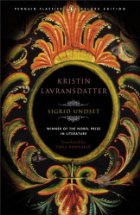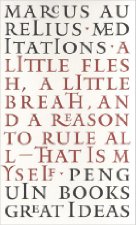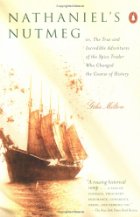
Welcome to the first installment of the Kristin Lavransdatter readalong, hosted by me and Richard! I can't wait to read everyone's thoughts on the first volume of Unset's trilogy. In case you missed it, Sarah posted about a cool, Kristin-related exchange she shared with a customer at her job; what a lovely little moment. Also, Eva at A Striped Armchair reviewed the entire trilogy the other day, which she devoured in just a week! Go Eva! She was very careful and considerate not to post any spoilers in her review, but just so y'all know, I'm going to talk about some major plot points (of the first volume only!) in my entry. So, be forewarned: if you're not reading along but think you might want to attack Kristin Lavransdatter in the near future with no idea about the plot, you might want to skip my little essay here.
One of the reasons I suggested reading Kristin with a group was that I had heard such great things about it from a huge variety of sources, yet kept putting off the actual moment when I would crack open the covers and begin to read. Historical fiction is pretty far outside my normal reading comfort zone, especially books set in the medieval period that involve some kind of romance. I have certain snobbish instincts to bundle all such stories into my personal stereotype of awkward exposition, overwrought dialog, and anachronistically modern notions of love and marriage. Frankly, I think it's high time that snobbishness was challenged. And so far, Kristin Lavransdatter is doing a good job of challenging it, but in ways that are different than I anticipated. I think I was expecting something more like the work of Icelandic novelist Halldor Laxness: ultra-realistic; moving slowly and hinging on small, everyday events; grimly funny in a militantly anti-romantic way. Instead, Kristin moves quickly and smoothly, and involves big swathes of drama, veering at times into melodrama. I'm still not quite sure what to make of the old seduction-while-sheltering-in-the-barn-during-a-storm chestnut, or the conveniently untimely death of Erlend's first mistress Eline: both of those events disrupted the flow of my reading a bit, and made me direct rhetorical questions at the author: "Really, Sigrid?" I asked. "Really?" Nevertheless, apart from those two examples I was completely sucked into the story while I read it, and I think Undset does an impressive job of writing a thoroughly-researched novel that doesn't force its research down the reader's throat. Kristin, Lavrans, Ragnfrid and the others seem true to what I know about people, as well as being true (as far as I can tell) to their place and time. They don't stop in the midst of the action to explain their culture to the modern reader, which is one of my top peeves about "otherized" literature, including historical fiction. And Undset's descriptions of the Norwegian landscape are understated, yet lovely:
In the middle of the night she woke up when her father touched her shoulder in the dark.
"Get up," he said quietly. "Do you hear it?"
Then she heard the singing at the corners of the house - the deep, full tone of the moisture-laden south wind. Water was streaming off the roof, and the rain whispered as it fell on soft, melting snow.
Kristin threw on a dress and followed her father to the outer door. Together they stood and looked out into the bright May night. Warm wind and rain swept toward them. The sky was a heap of tangled, surging rain clouds; there was a seething from the woods, a whistling between the buildings. And up on the mountains they heard the hollow rumble of snow sliding down.
In one sense, the novel is called Kristin Lavransdatter simply because that's the main character's name: the old Norwegian naming system formed surnames from one's father's first name, so that I, since my dad is named Michael, would be Emily Michaelsdatter, and my dad, son of Warren, would be Michael Warrenson. So in a way Kristin Lavransdatter is as obvious a title as David Copperfield. In another way, though, I think it's more significant, because the relationship between Kristin and her father Lavrans is a major theme, at least in The Wreath. Kristin is her father's best-loved daughter - loved, it turns out, better than his wife, better than the home he's kept for them. In the early scenes, during her childhood, the tenderness between them is palpable. She identifies so much more strongly with her father than her mother that at one point Ragnfrid has to reassure Kristin that she actually loves her - and while I was inclined, as the story began, to sympathize with Lavrans and blame Ragnfrid for this family dynamic, those sympathies were significantly complicated by the end of The Wreath. In many ways, I think the Lavrans/Ragnfrid and Lavrans/Kristin relationships are more interesting and important, in this first volume, than Kristin's courtship and engagement to Erlend. Kristin's wintry standoff with her father, when she is living at home after he refuses to consent to her marriage, is so heartrending to me, and quite delicately done (this is probably the section of The Wreath that most closely approaches my expectations of Laxness-ian desperation). In the end, loving Kristin forces Lavrans to reexamine his own decisions and assumptions about how life works, which I think is an interesting commentary on families - how parents learn from their children, as well as the other way around.
To me, one of the most intriguing aspects of The Wreath is its portrayal of the process of Christianization. Kristin's family are devout Christians; it's established in the early pages of the novel that they're more pious than average: "...the other people in the valley felt that God's kingdom had cost them dearly enough in tithes, goods, and money already, so they thought it unnecessary to attend to feasts and prayers so strictly or to take in priests and monks unless there was a need for them." Yet even for the extremely pious in Undset's novel, it seems that their world has only been partially Christianized: in the villages and cities Christian beliefs apply, but in the mountains, away from civilization, live the elves, dwarves and trolls of the old, pre-Christian belief system. It's as if the medieval Norwegians perceived the work of religious conversion as applying more to the actual land itself than to the people living on it - as if the act of buildling churches and cities transformed a region from the territory of the old beliefs to a Christian region. Even Lavrans, who gives ample proofs of his piousness, sees no contradiction in continuing to believe in other kinds of supernatural beings in the mountains. Before seven-year-old Kristin has her titular vision of a blonde maiden with a golden wreath beckoning to her from beyond a pool, Lavrans admits that "I've seen herds of cattle and sheep, but I don't know whether they belonged to people or to the others." And after the little girl runs terrified back to her father, saying that she thinks the vision was a "dwarf maiden," nobody thinks to contradict her:
"Oh, that must have been the elf maiden - I tell you, she must have wanted to lure this pretty child into the mountain."
"Be quiet," said Lavrans harshly. "We shouldn't have talked about such things the way we did here in the forest. You never know who's under the stones, listening to every word."
He pulled out the golden chain with the reliquary cross from inside his shirt and hung it around Kristin's neck, placing it against her bare skin.
"All of you must guard your tongues well," he told them. "For Ragnfrid must never hear that the child was exposed to such danger."
So the Christian ethos, while real for these characters, is something that needs to be guarded and invoked, rather than something that naturally permeates the whole world around them. And threats to a Christian enclave are often localized and external - similar to a modern person's bodily fear of venturing into a "bad neighborhood." It's a take on religious conversion I'd never run across before, and one that fascinates me.
Tuesday over at Tuesday Reads wrote a couple of posts on the question of whether or not Kristin is a "modernist" novel, and I think it's an interesting question - one that speaks to what I was expecting from Undset versus what I got. Because it was published between 1920 and 1922 and often labeled "modernist," I was taken by surprise by the relatively traditional, un-experimental narrative style, and the somewhat Victorian level of drama (I wouldn't have batted an eyelash at the barn scene in, say, a Bronte novel, but I was surprised to find it in the twentieth century). So I think Tuesday's on to something in her rejection of the idea that this book is "modernist." On the other hand, there are certain, more subtle ways in which Undset plays with our expectations. Despite the romance elements and the fact that Kristin and Erlend triumph over steep odds to achieve their wedding, the end of The Wreath definitely doesn't feel like a happy-ever-after. Kristin experiences her wedding as a surreal nightmare, haunted by the sins she feels she has committed, and by the knowledge of how many people she's hurt to get what she wants. And the book itself doesn't end with the happy, reunited couple in their bridal bed, but with Kristin's parents, who must face up to their regrets about their own married life. So perhaps Undset is more transgressive than at first appears.
Regardless, I'm looking forward to continuing on to Part 2: The Wife.
Be sure to check out everyone else's thoughts! (I'll update this list as more folks post):
- Amy mentions that, despite its 14th-century setting, Kristin still has many aspects that are relevant to 21st-century life.
- Claire enjoyed the setting but was otherwise lukewarm about The Wreath. She theorizes that the novel may have been considered "modernist" for its frank sexuality.
- Dawn writes about the role of religion in Kristin, and singles out a remark by Fru Aashild.
- E.L. Fay commends Undset for creating a protagonist true to her time, unlike many "anachronistic feminists" found in historical fiction, and includes intriguing parallels with Dante.
- Frances muses on her aversion to the historical fiction genre, and wonders what a useful definition of said genre might be.
- Gavin is enjoying the historical aspects of the book, including the descriptions of the land and the growing role of the Church, but finds Kristin's storyline overly melodramatic.
- Jason discusses the tragedy inherent in Kristin's renunciation of self: the way she's defined and self-defined solely in relation to the men around her.
- Jill, who has finished all three volumes, says that she thinks The Wreath is the weakest of the three, and makes an interesting comparison between Kristin and Fiddler on the Roof.
- Lena questions whether the love between Kristin and Erlend is worth having at the cost of Kristin's ties with the rest of her family, and also makes the interesting point that Undset was discouraged from writing historical fiction at the beginning of her career, only to return to it once her reputation had grown.
- Lu does a fascinating analysis of Undset in light of her contemporary Simone de Beauvoir's writings on the traditional depiction of women in literature as the mysterious "other."
- Richard acknowledges a few high points of The Wreath, but overall finds the overwrought plot to be a big turn-off.
- Sarah gives The Wreath an overall good review, although she's dubious about the direction the larger book is heading, and is liking Kristin less and less as time goes on.
- Softdrink writes hilariously about her conflicted sympathies - the characters frustrate her, but she also feels their flaws make for a memorable read.
- Tuesday, as I mentioned, rejects the idea that Kristin is "modernist," and reads it as a tribute to Romance. (It's only fair to say that these are Tuesday's reading notes, not a final review.)
- Valerie raises the interesting question of whether Kristin is a male-centered story, despite having a female protagonist.






